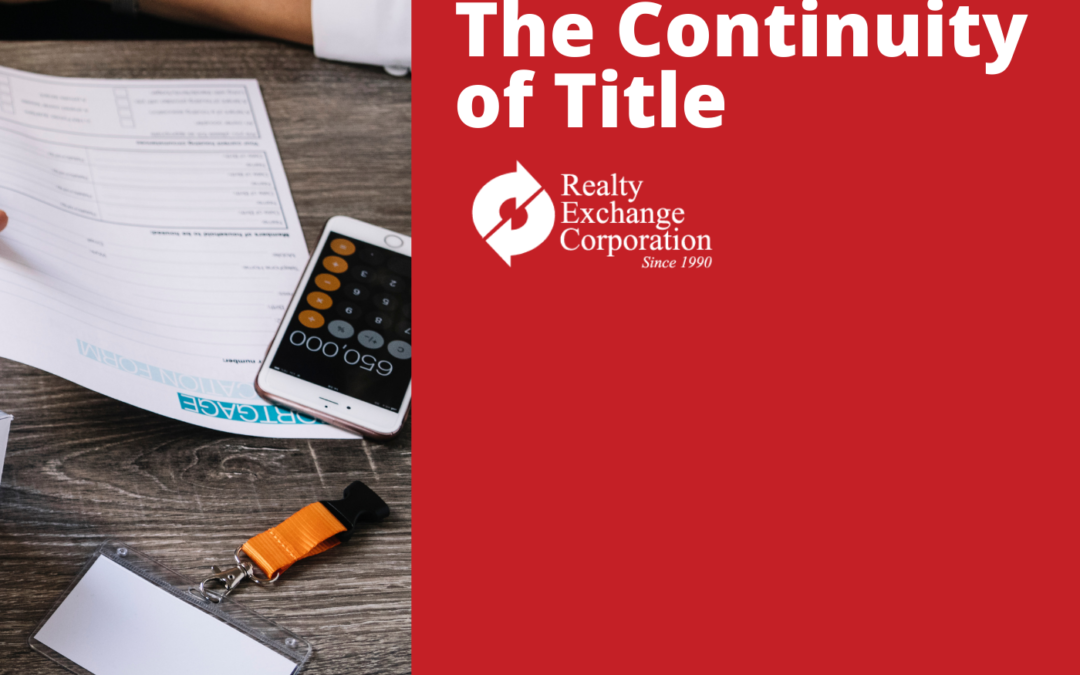Continuity of title is an important component of a 1031 exchange. Remember: 1031 exchanges are about deferring taxes. The same taxpayer(s) that sells a property must be the same taxpayer(s) that owns new replacement property(ies). We strongly recommend you check who the owner is. Since exchanging is about taxes, you have to be consistent in reporting the 1031 exchange transaction on the same tax return. For real estate, a good place to check is the online local tax records. Though not universal, the two sources should match – the property is reported on your tax return, and your ownership is recorded at the local courthouse.
As with any rule, there are exceptions. The three exceptions pertaining to the transfer and receipt of exchange property are:
- Revocable Living Trusts
- A single-member limited liability company (LLC), and
- A Delaware Statutory Trust. ( IRS Revenue Bulletin explanation)

